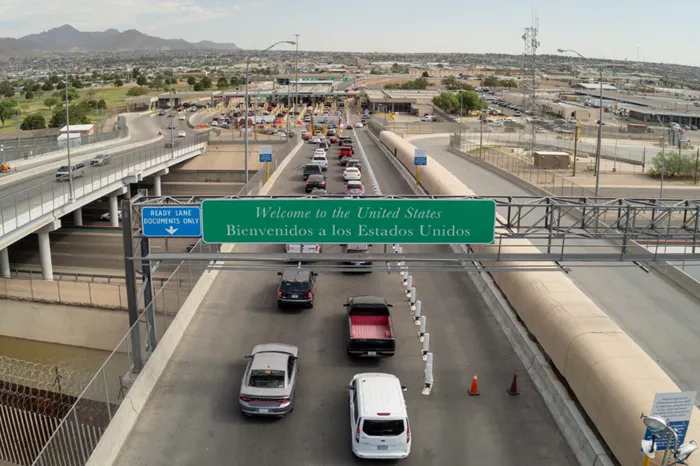Immigration Takes Center Stage in 2024 Presidential Race.
As the 2024 U.S. presidential election draws closer, immigration has emerged as a key issue, with both candidates taking more stringent positions compared to past campaigns.
Trump’s Focus on Immigration
Republican candidate Donald Trump continues to make immigration a central theme of his campaign, as he did in his previous two runs for the presidency. This time, his rhetoric has intensified, with claims, some unfounded, targeting migrants with legal status in areas such as Springfield, Ohio.
Trump has consistently portrayed immigrants in a negative light during speeches and rallies, and he has vowed to carry out a large-scale deportation of millions of undocumented individuals.
Harris Shifts Toward Stricter Immigration Policies
Democratic nominee Kamala Harris, following the lead of the Biden administration, has moved towards a more conservative approach to immigration. She supports limits on asylum and advocates for increased border security, especially in response to the record number of migrant encounters in late 2023. With these new policies, migrant encounters have significantly dropped this year.
Harris has repeatedly pledged to pass a bipartisan border security deal, which would represent one of the most substantial overhauls of U.S. immigration law in decades. However, this proposal stalled in the Senate after losing support from Republicans following Trump’s opposition.
Key Immigration Challenges for the Next Administration
Regardless of the election’s outcome, the next president will face significant immigration challenges, including the fate of the Deferred Action for Childhood Arrivals (DACA) program. DACA, which protects over half a million undocumented individuals who were brought to the U.S. as children, faces legal challenges from Texas, and the issue may reach the Supreme Court.
Other pressing issues include addressing work visa backlogs, the strain on U.S. immigration courts, and the future of individuals under Temporary Protected Status (TPS). Neither candidate has provided detailed plans on these issues.
Trump’s Promises on Immigration
Trump’s campaign continues to emphasize mass deportations, with him declaring plans for the largest deportation effort in U.S. history. He has also pledged to end birthright citizenship, aiming to stop children born to undocumented parents in the U.S. from automatically receiving citizenship, a move that would likely face significant legal challenges under the 14th Amendment.
Another controversial stance taken by Trump involves deporting pro-Palestinian students on visas, a position he highlighted in response to protests on college campuses regarding the Israel-Hamas war.
The End of Parole Programs and More
If re-elected, Trump has vowed to end the humanitarian parole programs used under the Biden administration to admit over a million migrants from conflict zones like Ukraine and Afghanistan. He has also expressed support for extending green cards to foreign students graduating from U.S. colleges and expanding the H-1B visa program for tech workers.
Furthermore, Trump has indicated plans to reinstate several of his first-term immigration policies, such as resuming construction of the southern border wall and renewing travel bans on individuals from predominantly Muslim countries.
Harris and the Bipartisan Border Security Deal
Harris has consistently pointed to the bipartisan border security deal as a key part of her immigration platform, promising to pass the legislation if elected. The deal includes provisions for increasing the bar for asylum claims and providing funding for additional asylum officers and detention facilities. It also includes pathways to citizenship for Afghan allies and other groups.
Harris, during her campaign, has been critical of Trump’s opposition to the deal and emphasized her commitment to both border security and creating legal avenues for migrants to attain citizenship.
Conclusion
Immigration remains a contentious issue in the 2024 presidential race, with both Trump and Harris taking a tougher stance than in the past. The next administration will need to address critical challenges, from the future of DACA to backlogs in immigration courts, while balancing security with pathways to legal status.
Related topics:
- Spain Turns to Immigrants to Boost Its Economy
- Trends and Effects of Immigrant Deportations
- Ohio Workers Support Haitian Immigrants!


